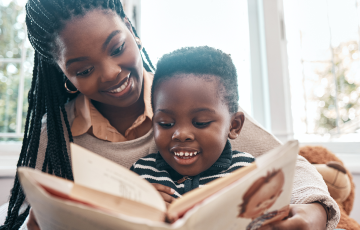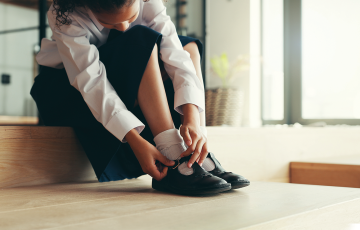How to talk to your child about puberty

This can be an exciting time for teenagers if they’re ready for the changes their bodies will go through – but it can be confusing if they aren’t. So talk to them before the time comes, to set their minds at rest.
Several physical and emotional changes take place as children enter puberty, which is when their bodies become ready for reproduction. While every child develops at their own pace, girls typically begin this phase at around 11 years old and boys at around 12. However, experts suggest that parents discuss puberty with their children long before its onset.
OPEN COMMUNICATION
‘It’s important to openly communicate with your child, from a young age, and discuss every growth stage so that when puberty starts, it will be easier to interact with them,’ advises Naku Masuku, national executive director of Families South Africa (FAMSA), which specialises in family relationship counselling. ‘Regularly talking to your child and giving them your time and presence will also ensure that they know you are their first point of contact for reassurance, information and guidance, at every phase of their life.’
Dr Rebecca Dingfelder, a professor at North Carolina’s Duke Child and Family Study Centre in the United States, offers these tips to help parents start up conversations about puberty with kids:
- Discuss puberty when your child notices or comments on other kids’ changing bodies.
- Bring up puberty when discussing conversations your child has had with peers.
- Watch your child’s favourite TV programme with them and chat about puberty when it features on the show.
- Talk about puberty as it arises in health discussions at school. Just be sure to know your facts before sharing information and, if in doubt, consult your family doctor or clinic for advice.
WHAT’S HAPPENING TO MY BODY?
There are various stages of puberty. Boys and girls experience growth spurts, increased sweating, body odour, development of sexual feelings and the maturation of organs and bone. For girls, specific physical changes include developing breast tissue, growth of pubic and underarm hair, menstruation, weight gain and possibly acne as well. Boys experience penis, testicle and pubic hair growth, acne, the ejaculation of semen during sleep and the ‘breaking’ and deepening of the voice.

AN EMOTIONAL ROLLERCOASTER
Raging hormones and a changing body can also lead to several challenging emotional and mental side-effects during the turbulent days of puberty. These include:
- Low self-esteem
- Self-consciousness
- Mood swings
- Aggression
- Depression
- Sensitivity
- Anxiety
- Confusion
These feelings are normal and temporary, and puberty can also be a time of great excitement and self-discovery. However, if you are worried about your child, seek guidance from a doctor, teacher or counsellor. ‘Also, if you have missed something and a teacher or someone else raises concerns about your child, take it seriously and address the issue immediately,’ suggests Masuku.
FAMSA
+2711 975 7106
national@famsa.org.za
famsa.org.za
Related articles

Latest Jet club magazine
We’ve got the latest trends, exciting prizes and exclusive savings just for you!
Jet Club will not pass your details to anyone else. By clicking the subscribe button you confirm you have read and agree to the Jet Club Terms and conditions and Jet Club Privacy Statement.
Subscribe

